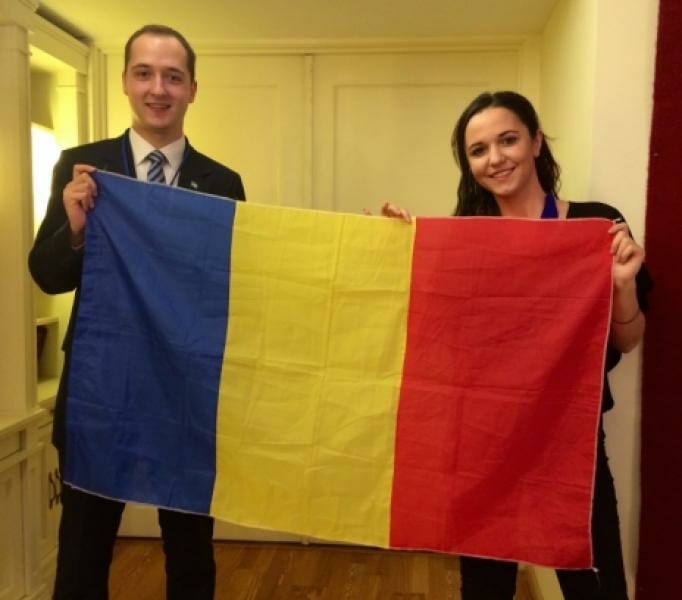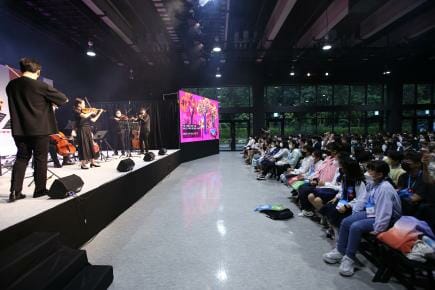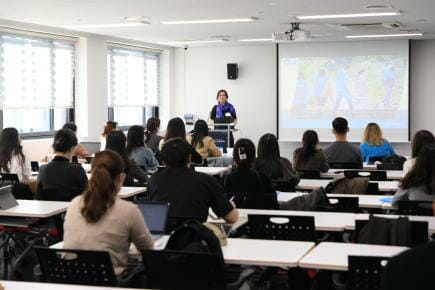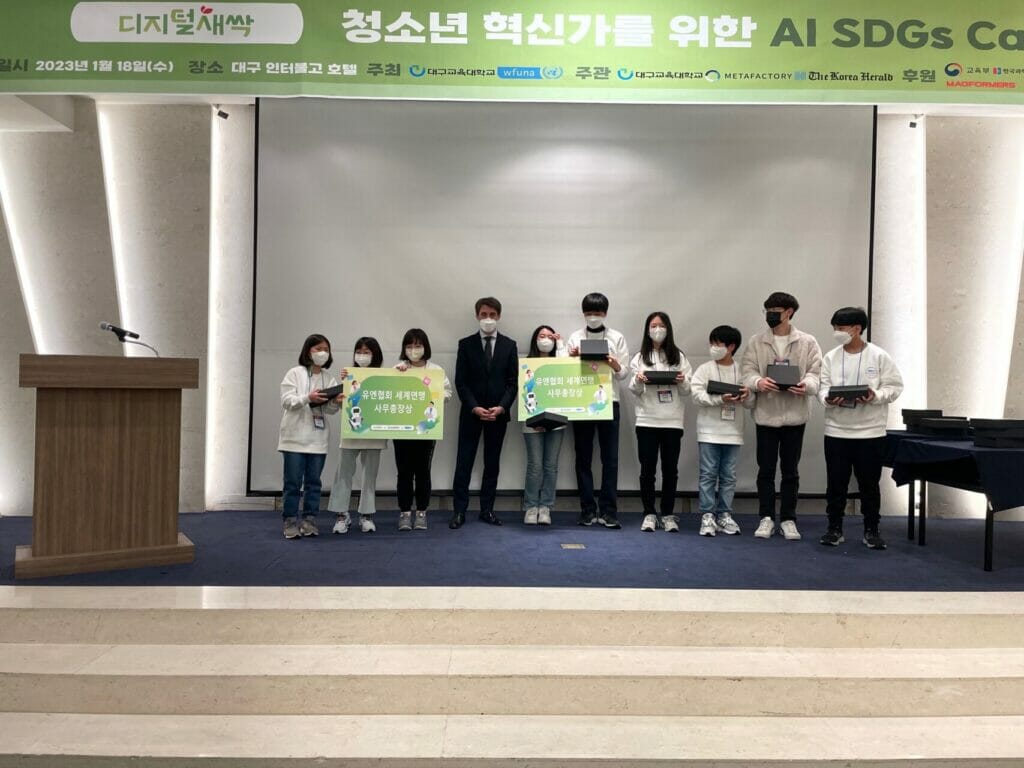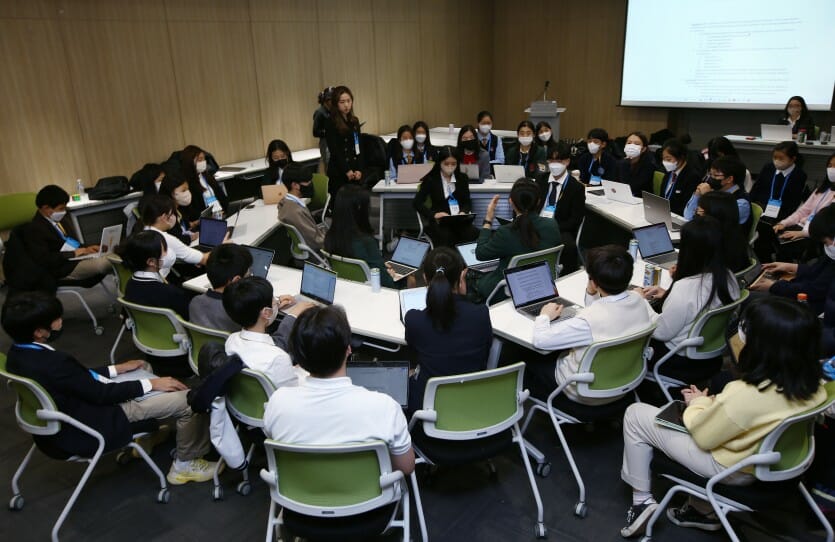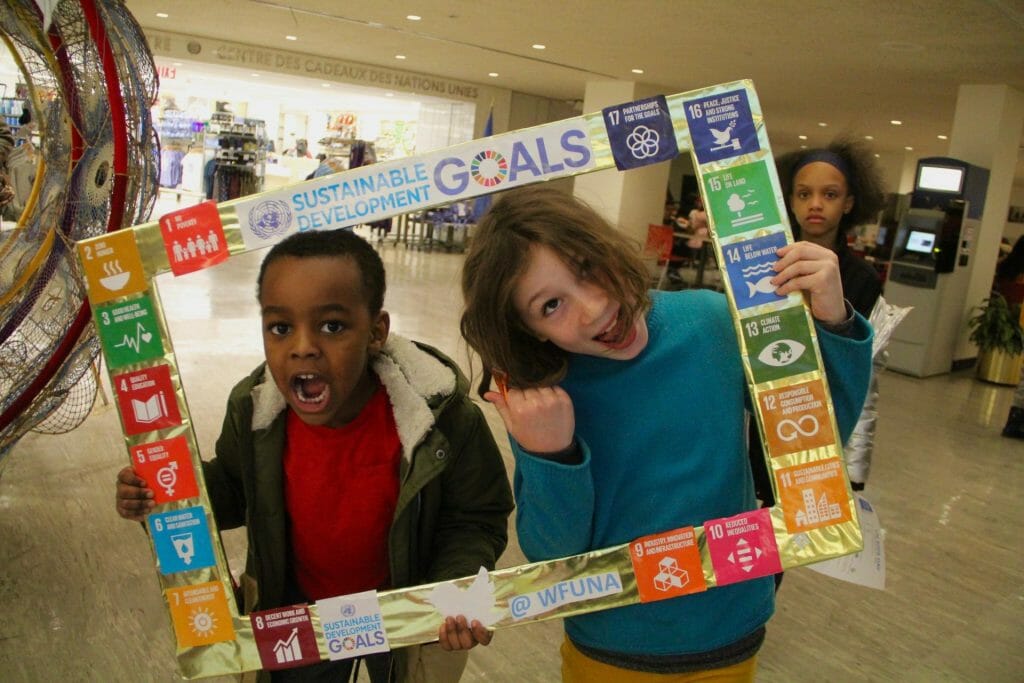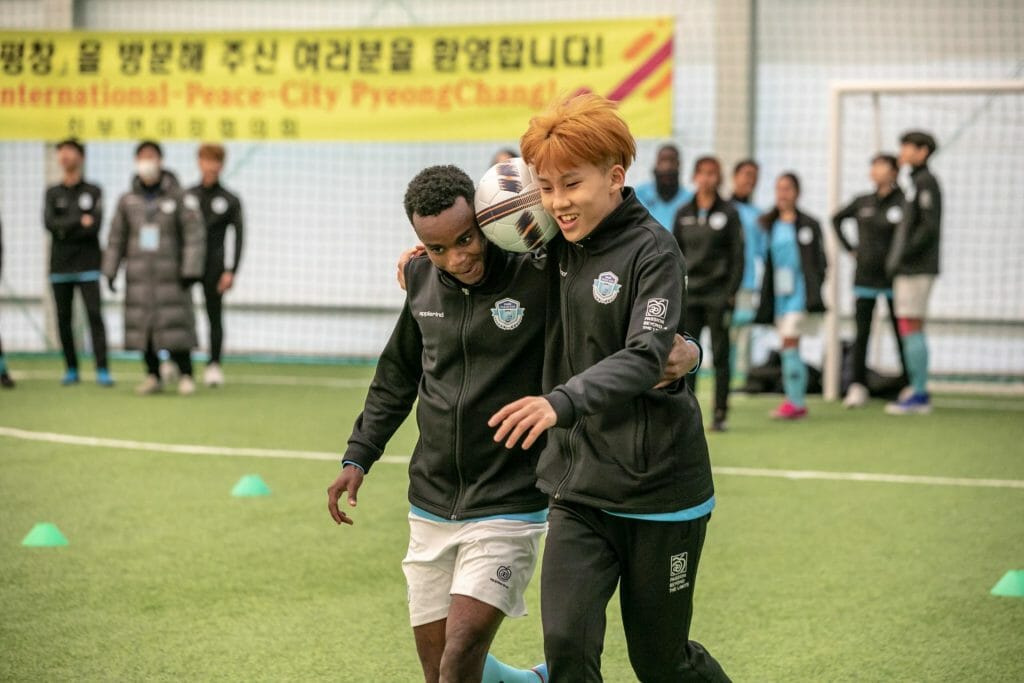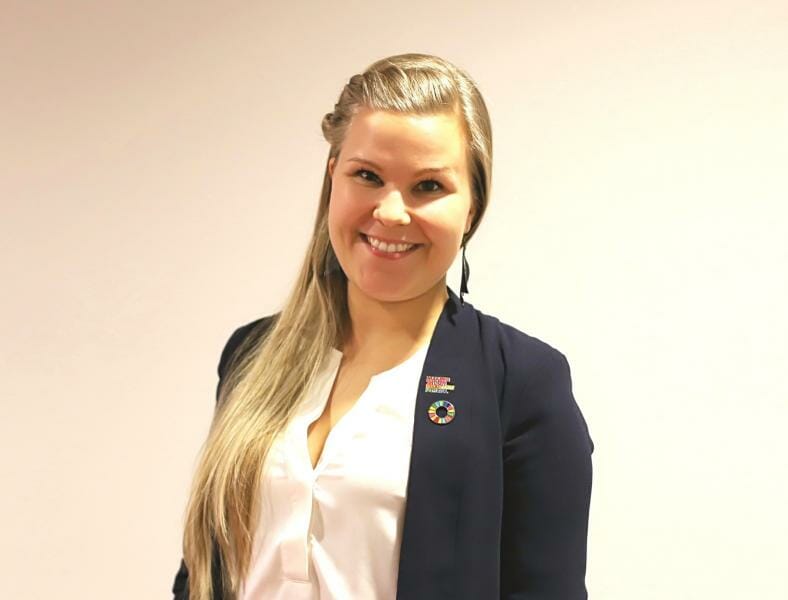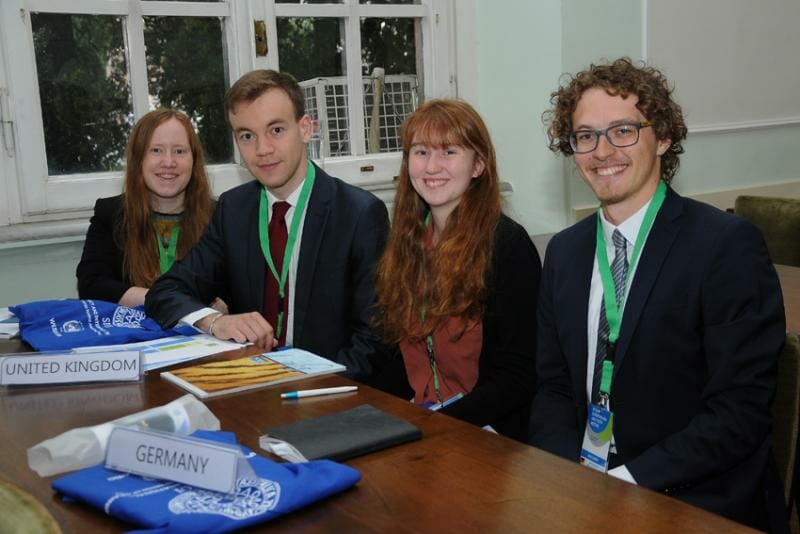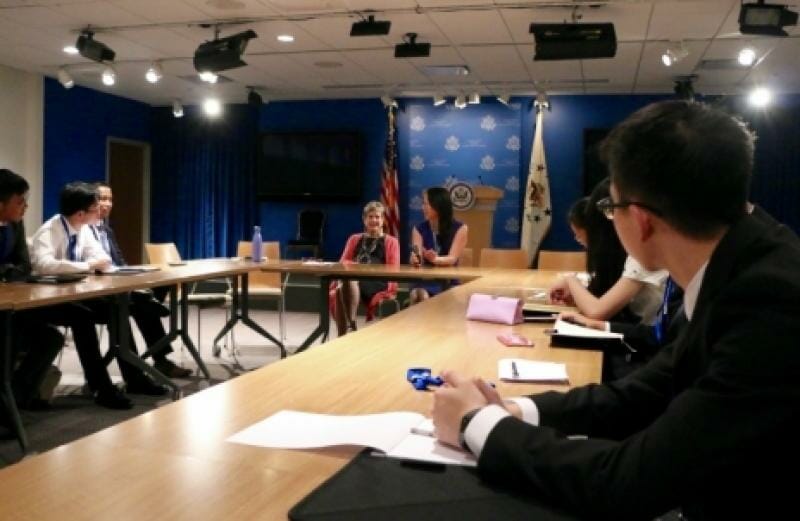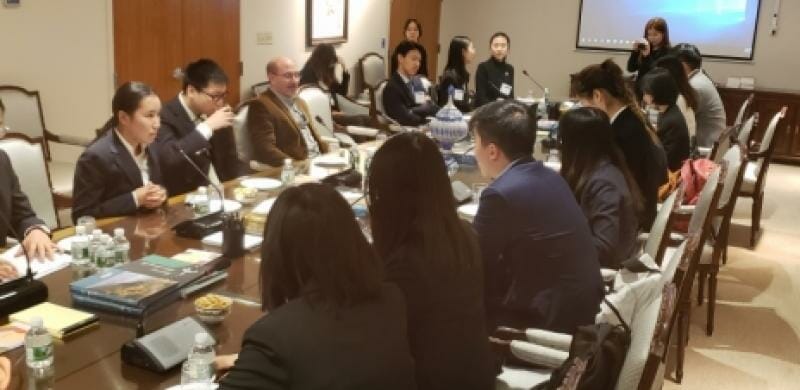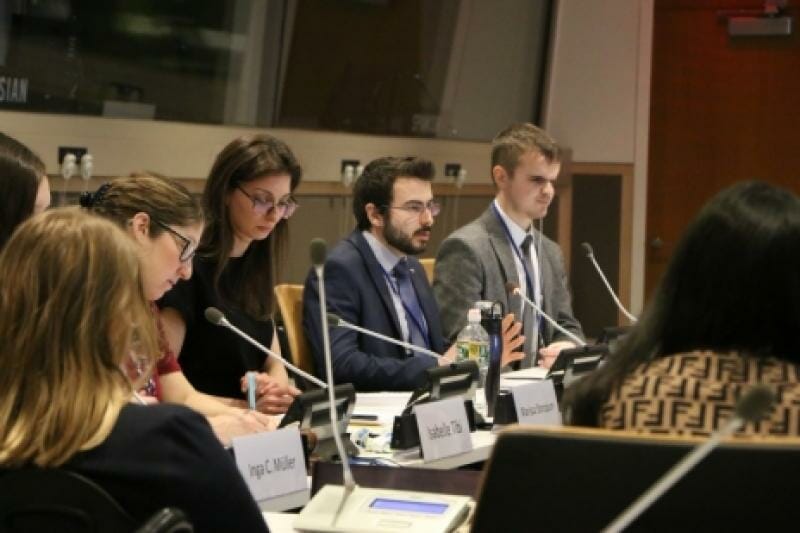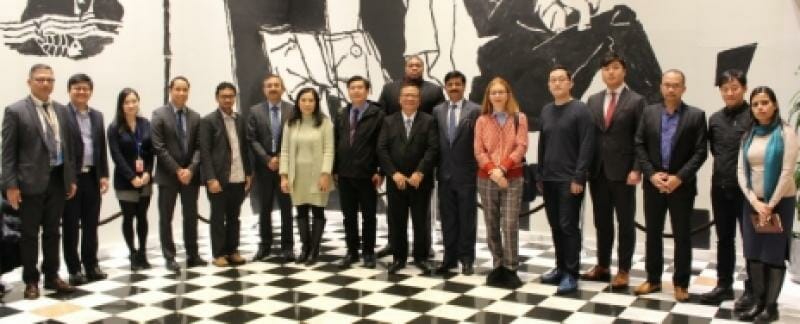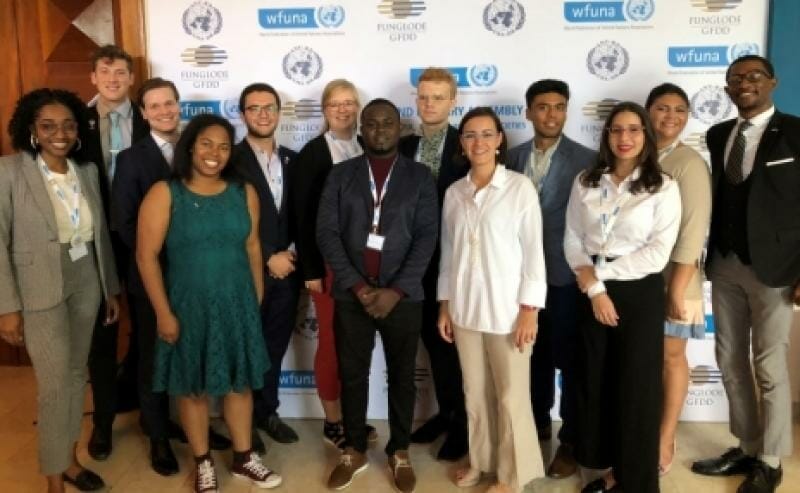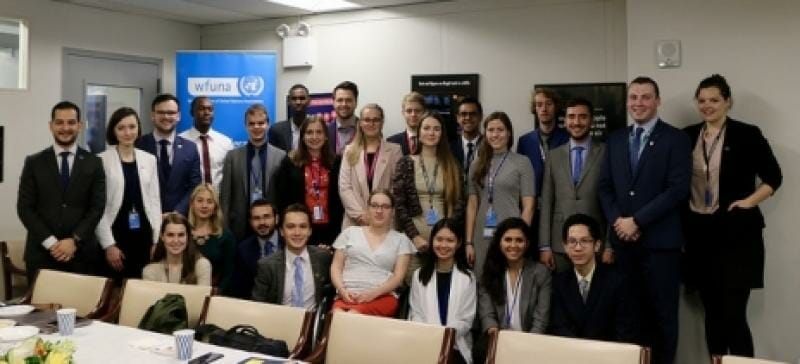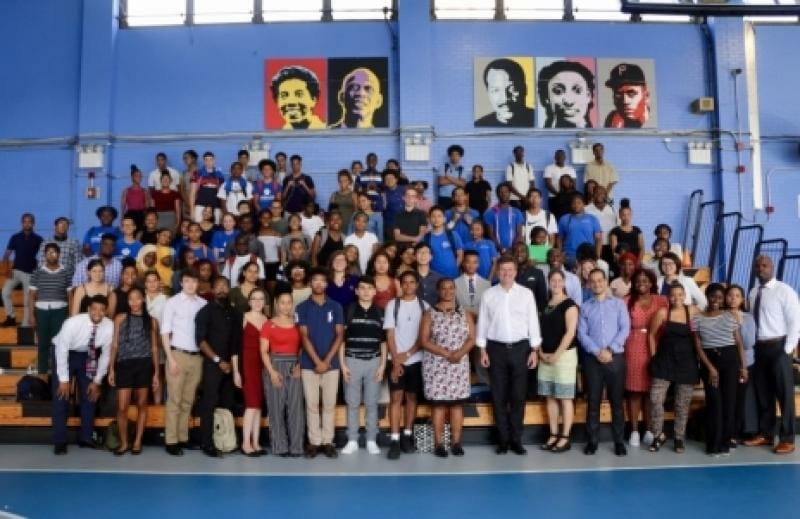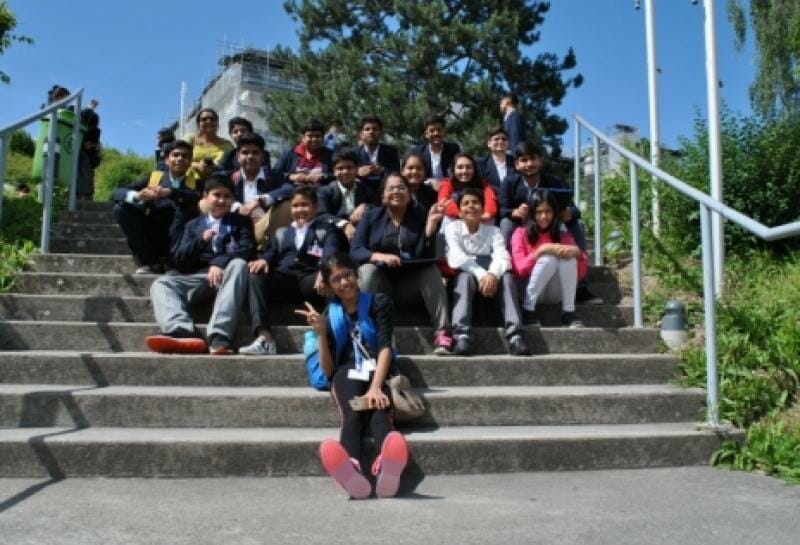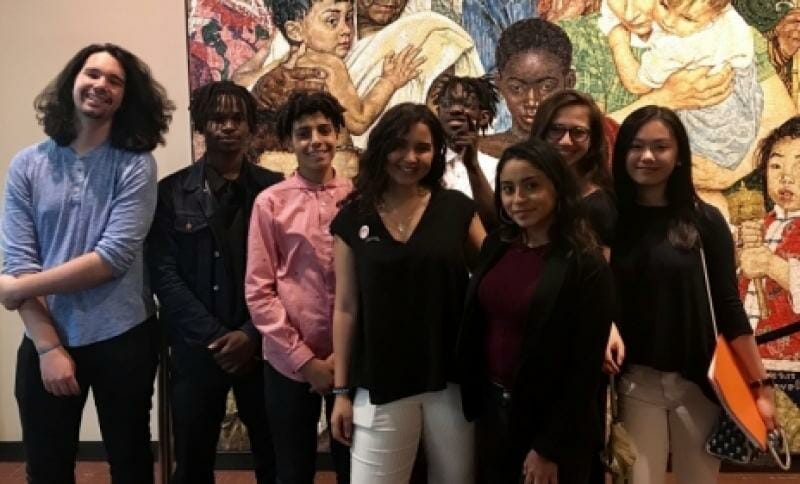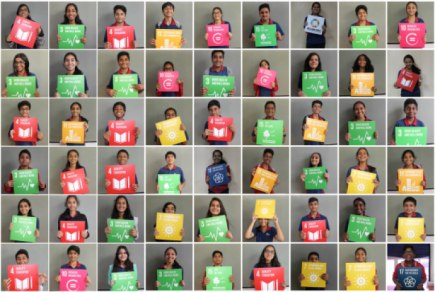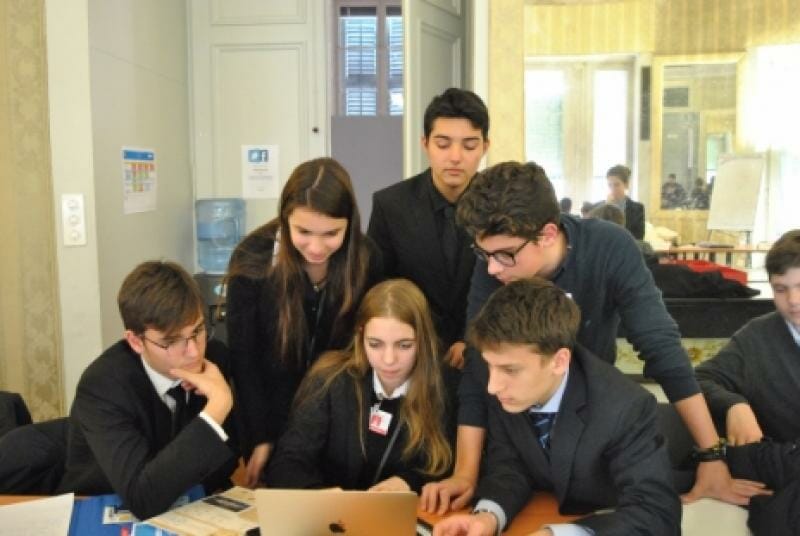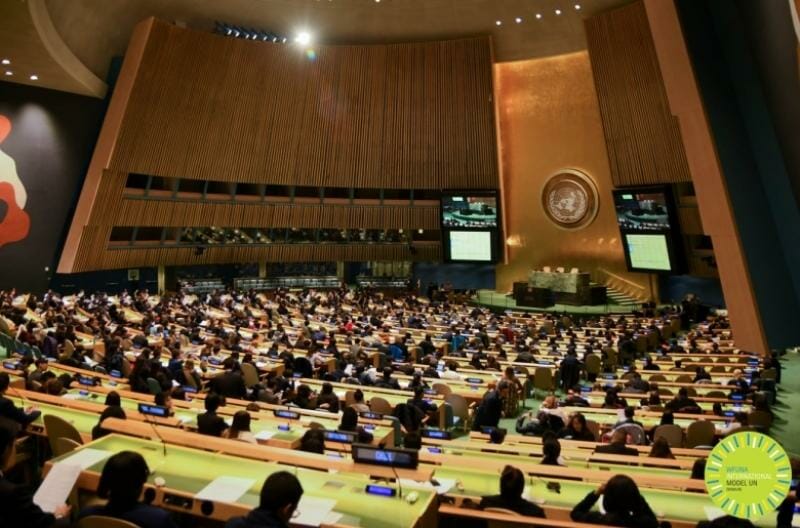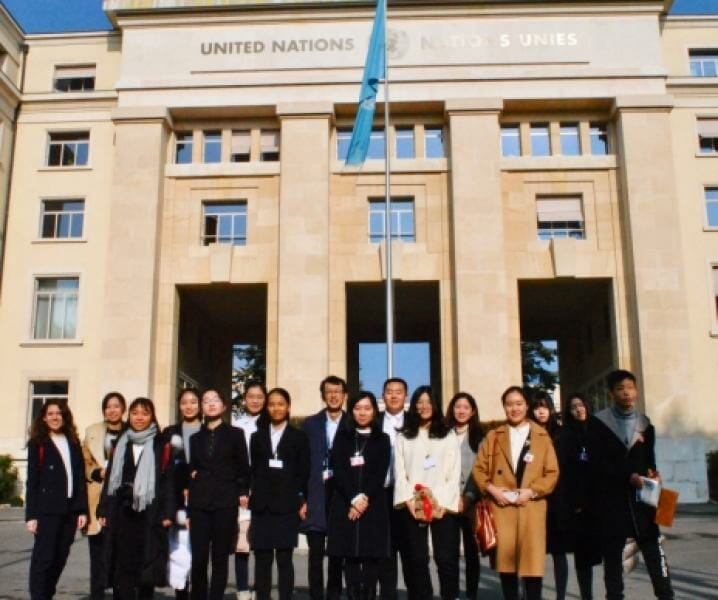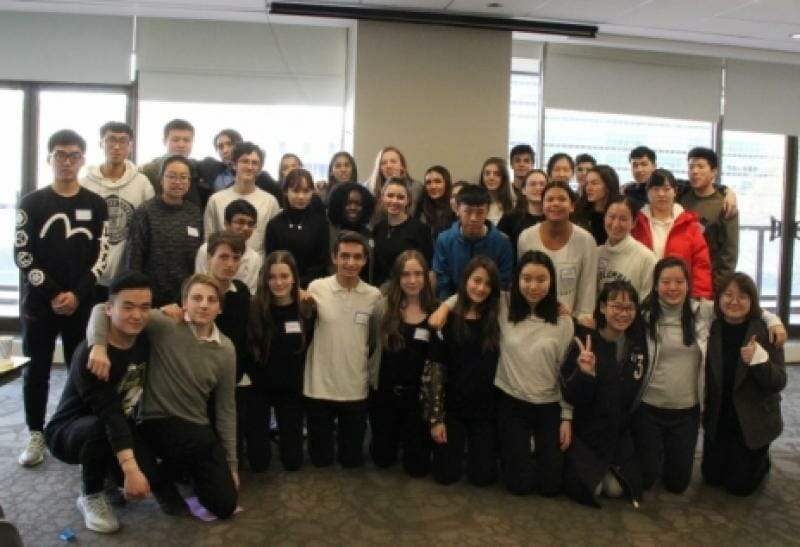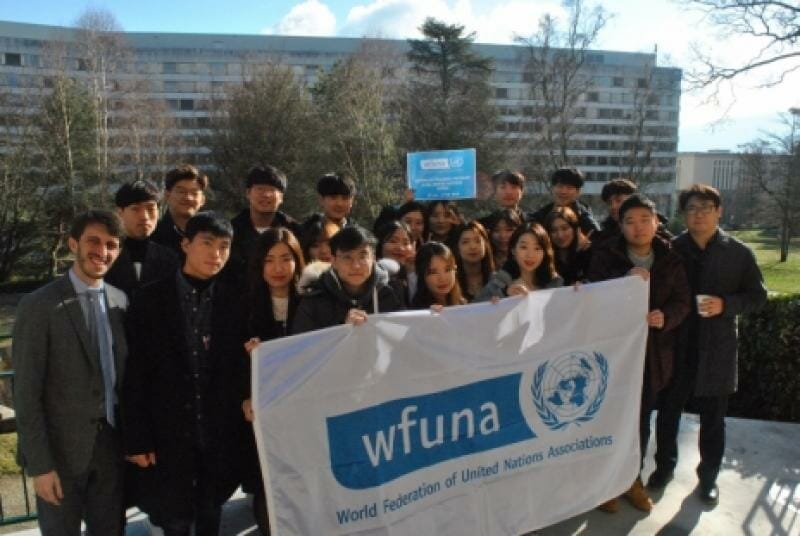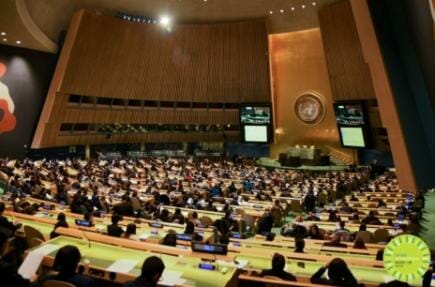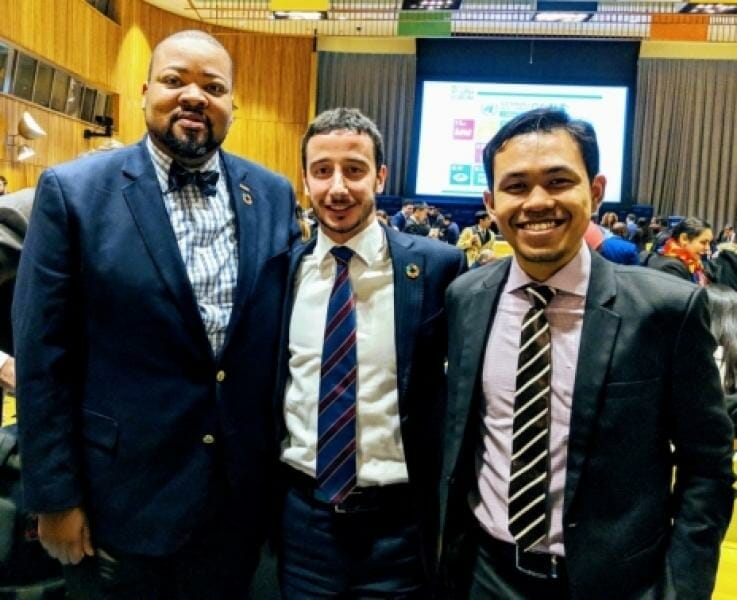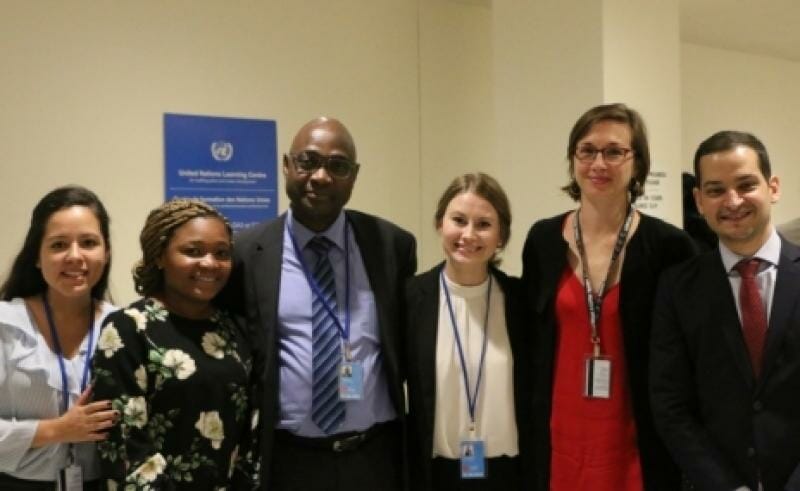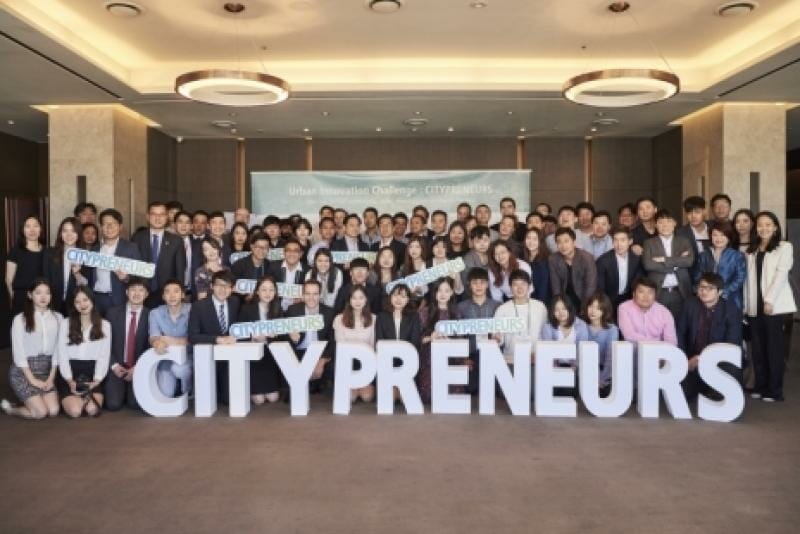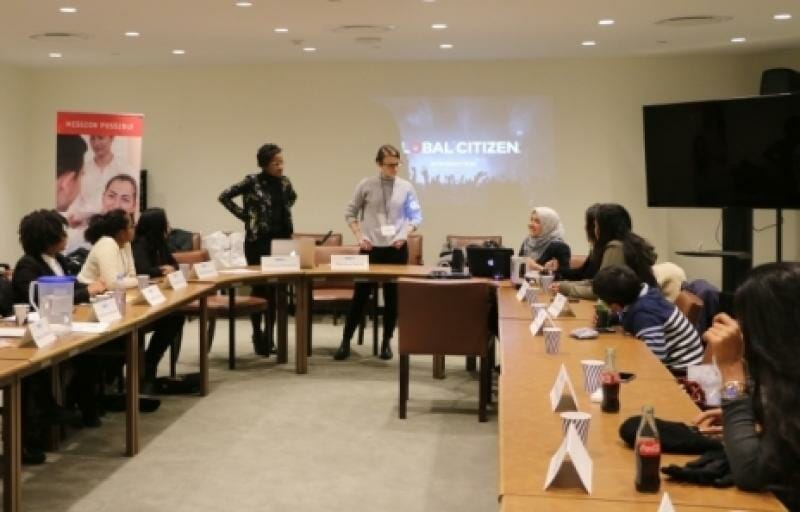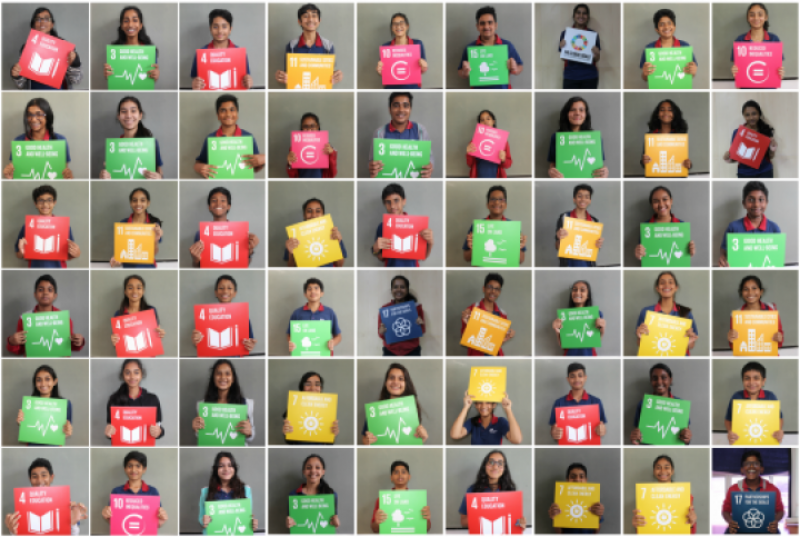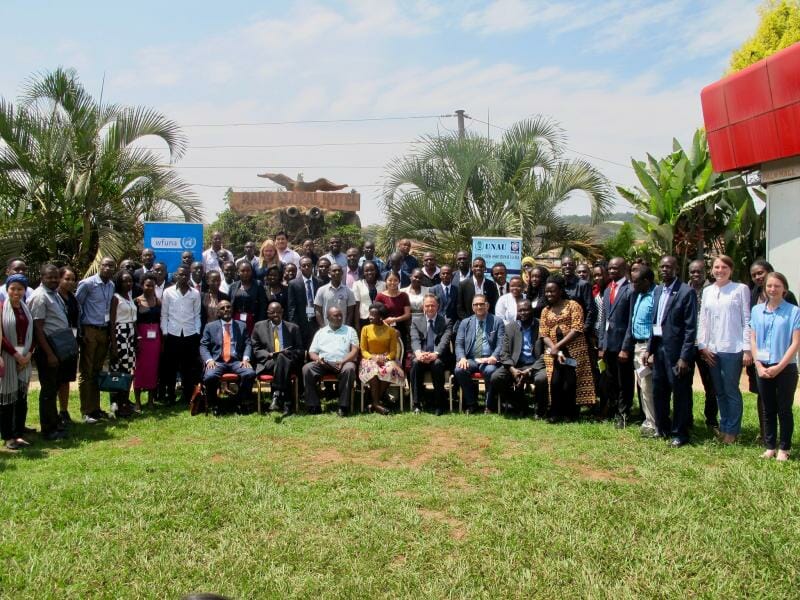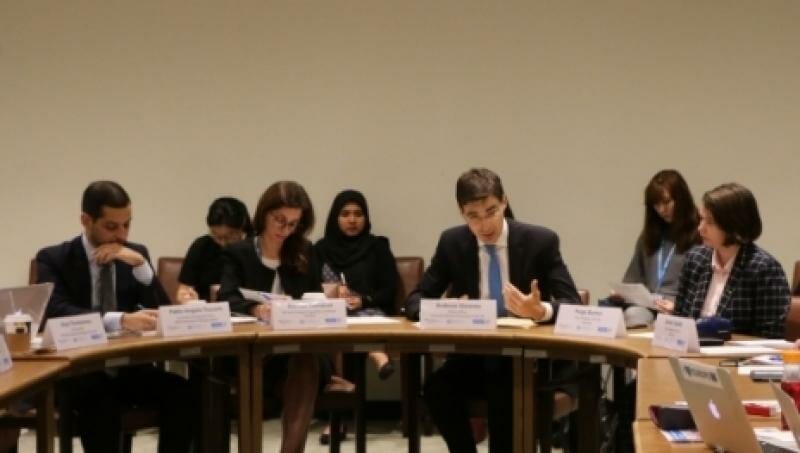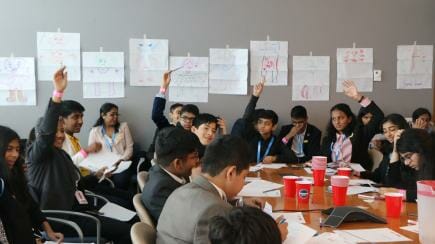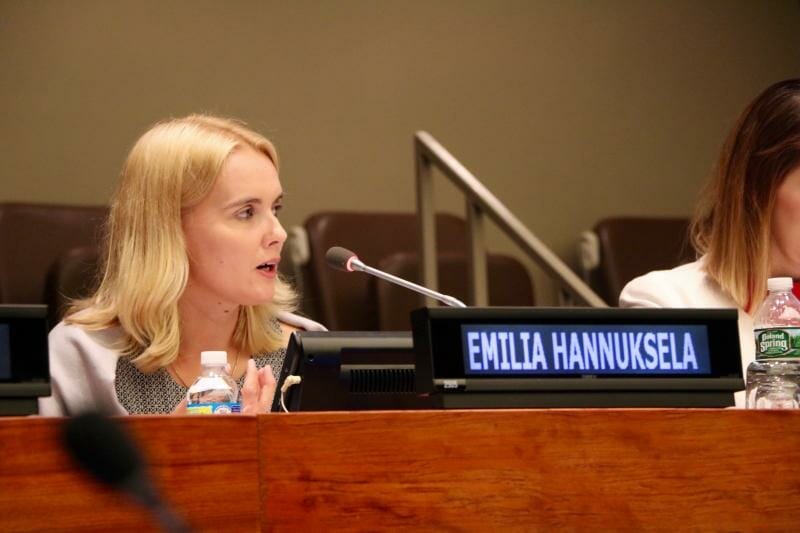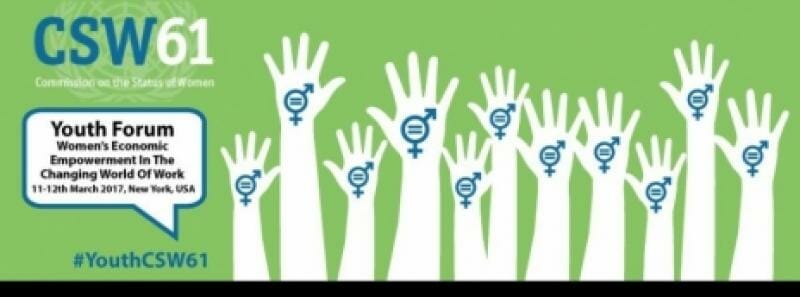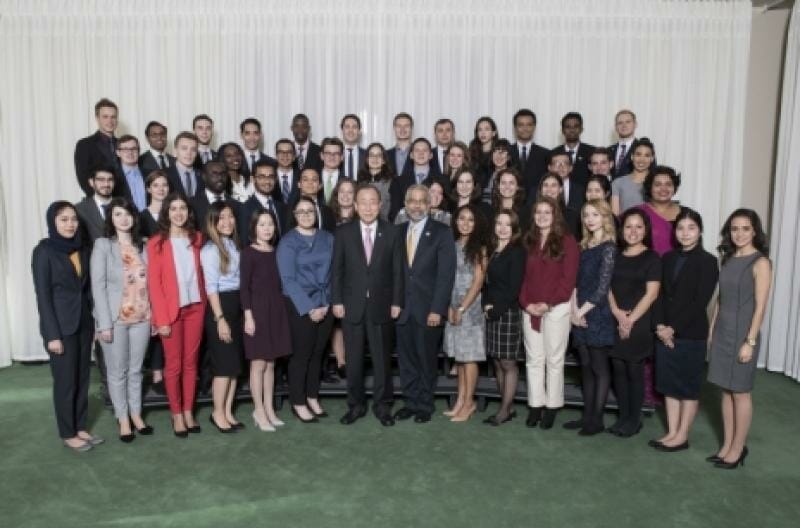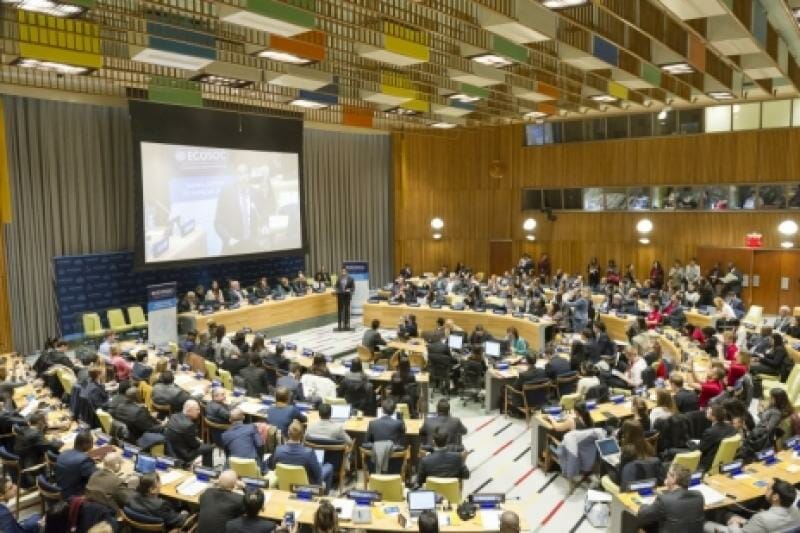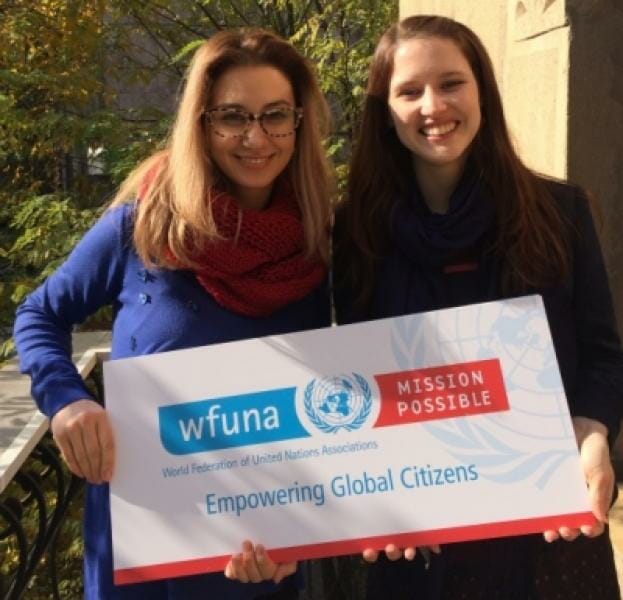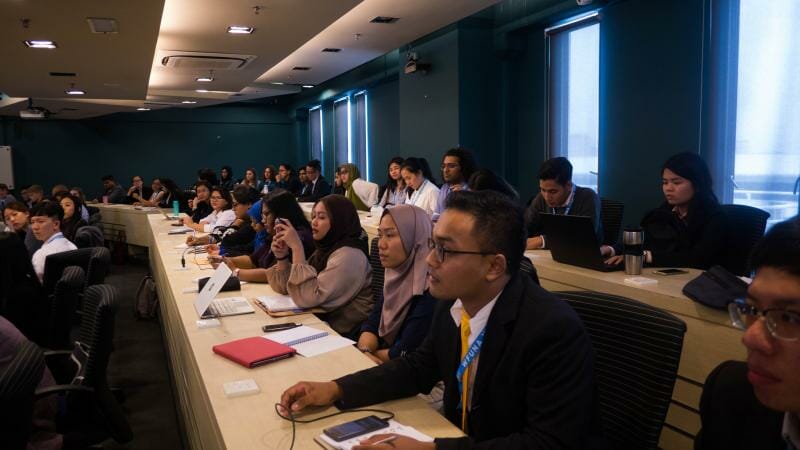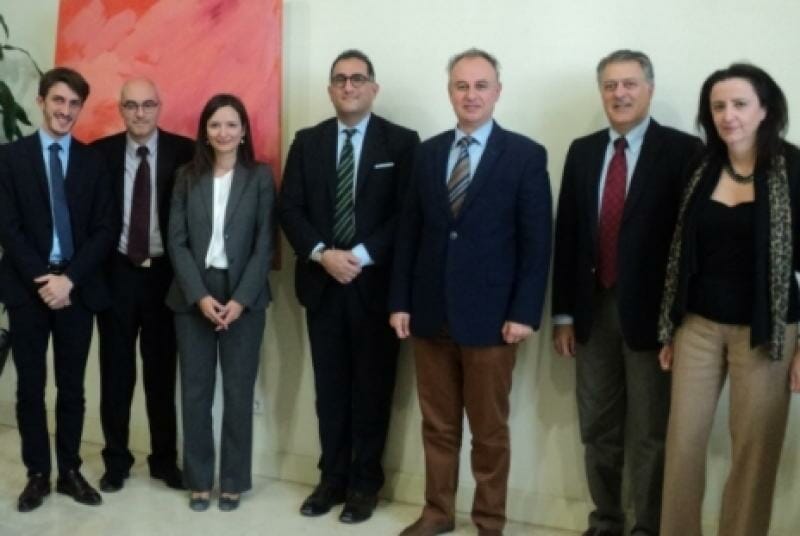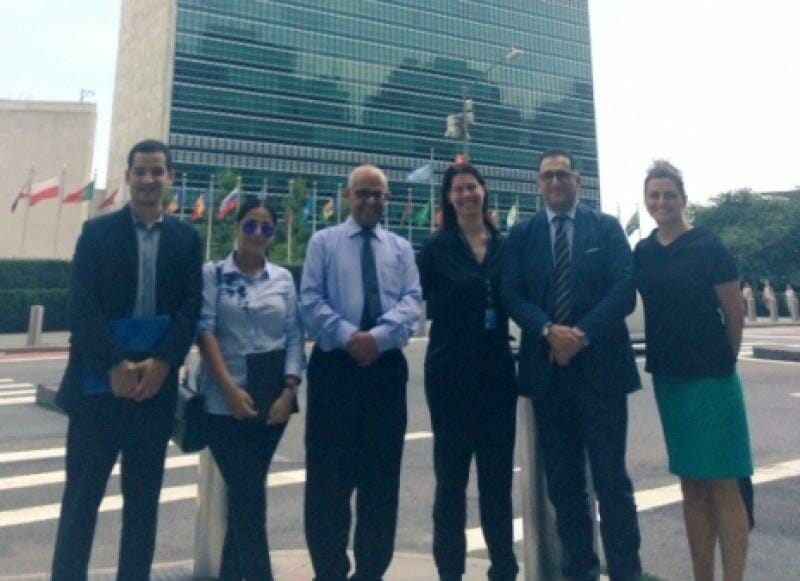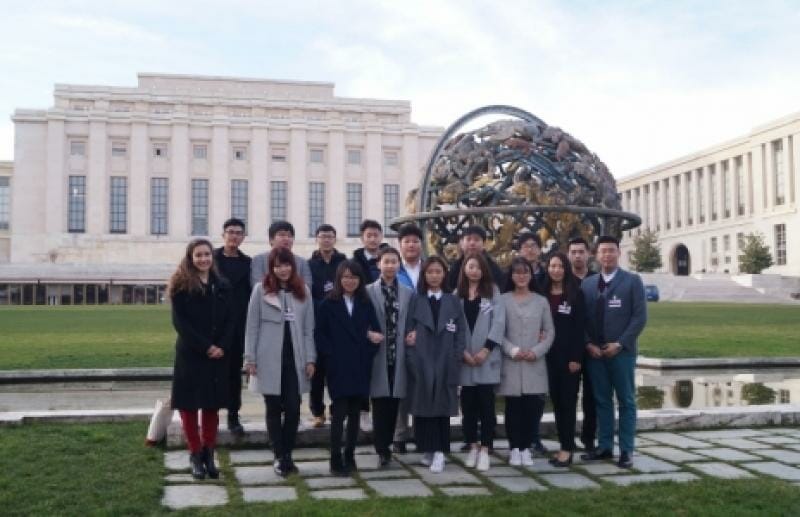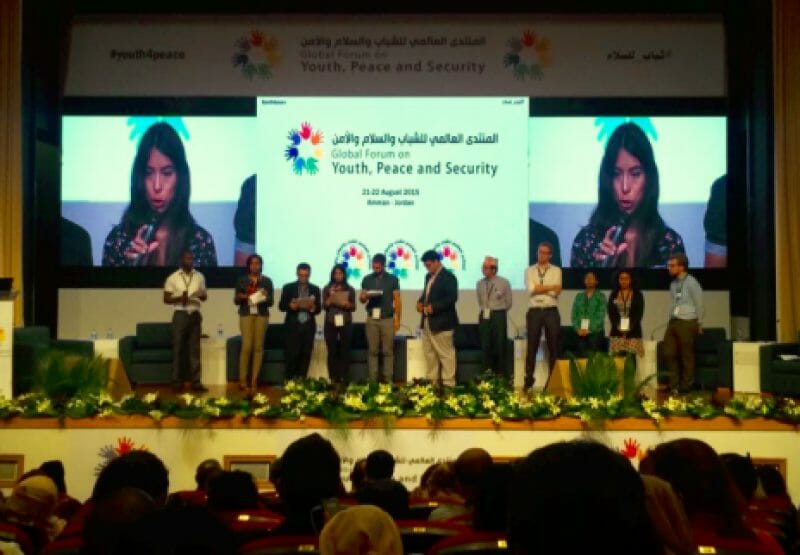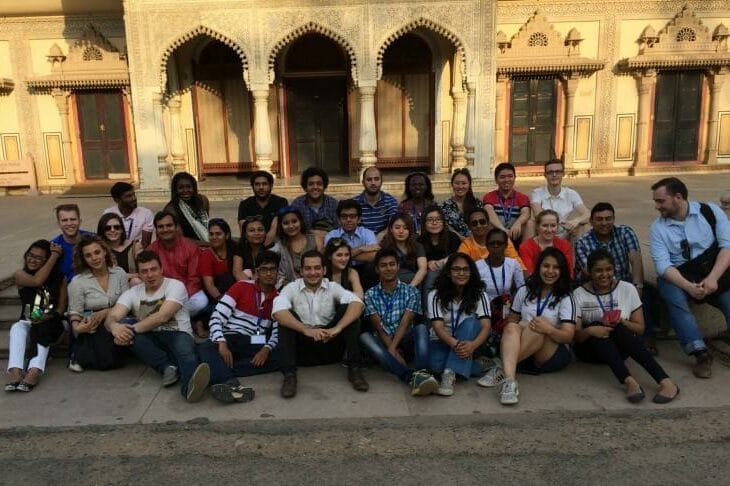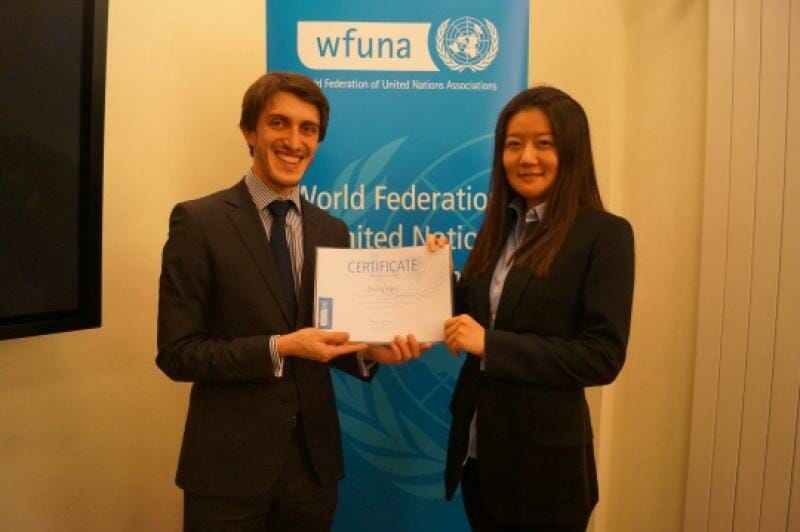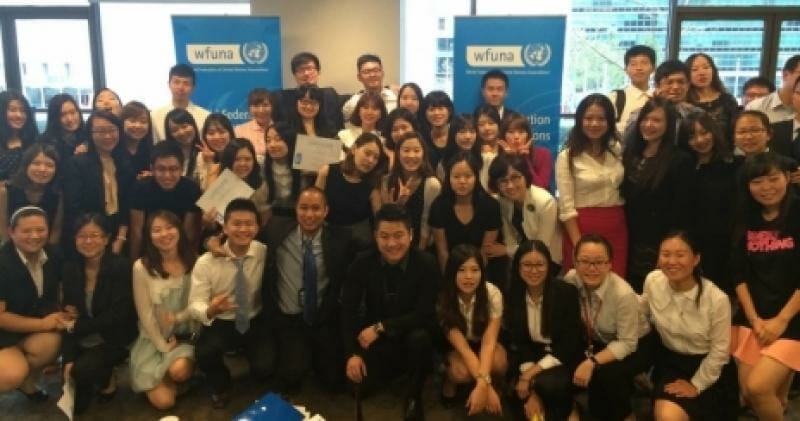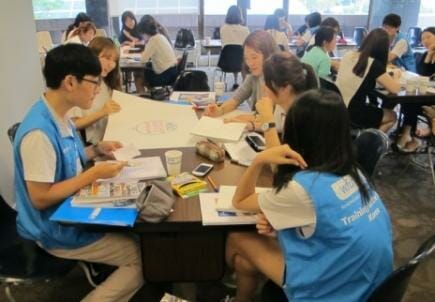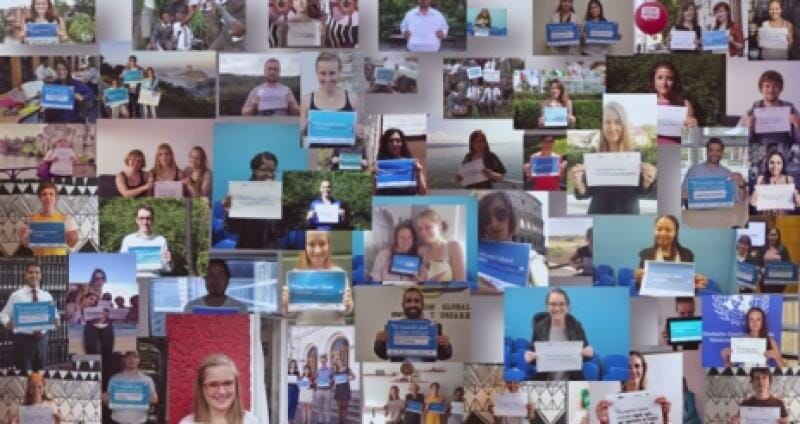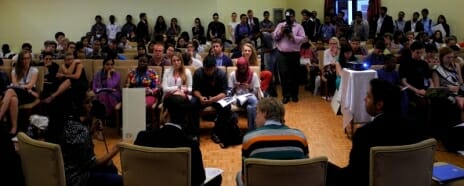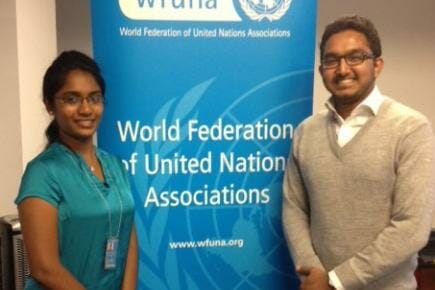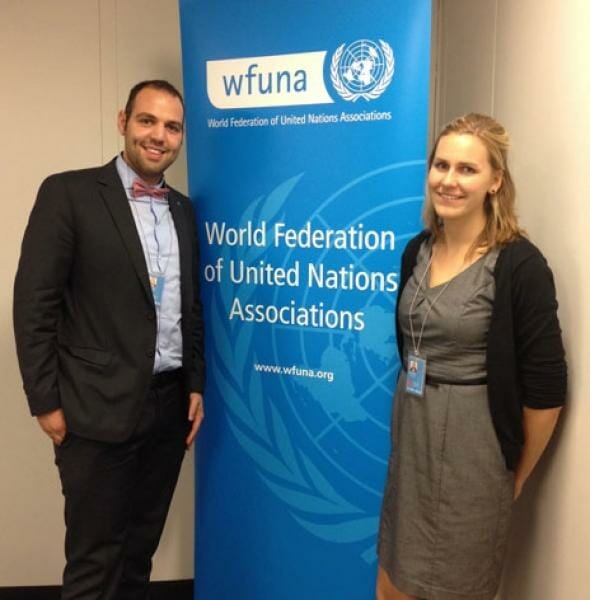TUESDAY, AUGUST 19, 2014
Before they end their mandate as UN Youth Delegates to Romania, we wanted to highlight our interview with Eliza Chirilă, 22, and Cosmin Chiriță, 23. Here they described how they became involved with the programme and the ideas they had on how to expand its reach in their home country.
What motivated you to become a Youth Delegate?
Eliza: I was following the program since I was in high school. Now, I live in Bucharest, which is the capital of Romania, but I used to live in a small city before becoming a student.
So access to this great opportunity was not easy to get from a small city in Romania. I was “stalking” the UN Youth Delegate Programme because I saw the authority of youth a few years ago doing the national selection. And then I saw who were the Youth Delegates and I was so surprised of their activities. I thought: “She is so young, she’s going to the UN to represent Romania. What should I do to get there?”
Cosmin: I also knew about the program since high school and right after I finished, I was volunteering for the UN Youth Association of Romania and again, I was reminded of the program once more.
I also was involved in the youth policymaking process from the UN Youth Association within the Consultative Council on Youth Issues, within the Ministry of Youth and Sports like for 2 or 3 years. So, being somehow fond of UN themes, UN issues and being involved in youth policies somehow got me here to the program.
What were the qualities that you felt that made you a good candidate?
Eliza: I thought about the work I had been doing for more than 7 years in the field of volunteering with youth and for youth. Then I was strongly working with Romanian students. I’m still a president of the student’s club in my University. I was tackling at that moment with the national youth strategy because I was part of the National Dialogue Group. So, I said: “OK, I know some stuff from within. I had been in so many youth exchanges around the world. I think I am a good candidate.”
Cosmin: Besides the volunteering and the youth policies and programmes I was involved with, I am also a professional trainer. I used to work with a lot of high school students, college students, a lot of youth. So, I think that most of these skills and abilities made me capable enough of being selected.
Can you tell us more about how the programme is promoted in Romania? Is it something that you would say most high schoolers in Romania know about?
Eliza: There is always space for improving the programme and its promotion. From my point of view, getting to know the programme from a small city, I think it is quite well-promoted, but [roles] should be more advertised. Usually, it is mentioned that we are doing national selections for the Youth Delegate Programme, but what does this mean and what do the youth delegates do afterwards? I saw them each year going to New York and representing Romanian youth, but I still had the question: What follows up after this?
It’s our duty now to promote it better and to make it more visible. Because it’s not all about being here in NY; I would actually say that it’s mostly about what you do back home because you’re representing the youth of your country.
Did you have a consultation period when you were selected and when you came to NY for the GA?
Cosmin: After the selection process we had a consultation period for about a month in which we managed to approach a lot of Romanian NGOs, student federations, and youth NGOs. So, basically this was the consultation process with representatives of NGOs in Romania before coming last October to the GA.
Was there anything that surprised you during the consultations? Were there issues that you didn’t know that were so important to people? What were the highlights of those talks that you had with people?
Cosmin: I wouldn’t say that there were things that surprised me or that we didn’t know about them, but we put more emphasis in what we intended to promote, such as the priority or the real need of an adaptive system education in Romania and prioritizing youth in the national public agenda. These were the most debated subjects during our consultations.
After we returned in October from New York, we did national consultations. We visited some cities in Romania and talked to youth and students about their problems at the local level, how did they want to be involved in local policies and even in national level policies. We even had a quite big event; given the speakers we had on youth empowerment in Romania and what actually can be done to improve this.
Eliza: Personally, I think that these kinds of opportunities, in the case of the Youth Delegate Programme, give you the chance to see your country from the outside. Because we tend to think that the situation is quite bad in my country. But while being here and seeing the way you communicate and collaborate with other young people from all around the world, it gives you an impulse to act more when back home. I also feel happy and somehow lucky because the Youth Delegate Programme is being implemented by around 30 countries. So being a country that implements the programme makes me think that the Youth chapter is doing a good job.
And what types of ideas did you come away with after New York?
Eliza: Oh my! They are not official ideas! I actually had this idea last night about a Youth Award for the UN Youth Delegate Programme to put emphasis on the activities of the Youth Delegates around the world. We are also talking a lot with Pablo about multiplying the UN Youth Delegate Programme. And we a met a girl today from Amnesty International, she is from France and she was interested in the programme. She wanted to know how to bring the UN Youth Delegate Programme to France. So, these are the main things, but there are ideas for conferences, for side events, for workshops in Romania because I have never thought before as a Youth Delegate of promoting the MDG’s around the country.
The buzzword going around right now is partnerships. There’s still not a concrete definition about what this means, but I feel like that for youth and our generation, being the most connected, would seam that it lends itself very naturally to partnerships.
Cosmin: I’m really glad you put this question because it is quite connected with the youth resolution. We also had the chance to be part of it at the GA last October. One of the main outcomes of this would be a Permanent Forum on Youth or a permanent consultation mechanism on youth. I think that bringing this Permanent Forum on Youth to the national level could also be a solution to the partnership issue at the national level.
Eliza: I would focus more on the partnerships we can develop back home, as my colleague talked about partnerships just with the UN. I really think it’s important for the ministry or the youth council or whoever implements the program in the countries to understand and to take benefit of all the contacts the youth delegates make here during their stay.
So what have you taken back to Romania in the time after the GA? What do you have to implement during the rest of the time of your mandate?
Eliza: First of all, the big amount of information regarding the MDGs and the Post-2015 Development Agenda. This is why I think our first event was in Craiova. We talked with young people about the Post-2015 Development Agenda and to our surprise they were very interested in the topic. Craiova is not a big city in Romania, not so close to the capital. We try not to focus too much on Bucharest. We thought it was better to focus on a small community.
Cosmin: I was thinking that one of the main purposes of the programme as a model is bringing youth closer to the UN and bringing the UN closer to youth. We also give back some, as Eliza mentioned, some expertise, some current trends at the international level, which might not be that promoted with the youth in the country.
There are two main purposes of our mandate. Not only to come here and represent the Romanian youth voice but also bring some information back home and try to lobby, advocate, work with the Ministry and youth NGOs to develop policies according to what’s happening at the international level.
What feedback have you gotten from youth in your country?
Eliza: Personally I think the feedback has been great. Of course, it was greater at the beginning when everyone was thinking: “Wow, you’re going to the UN,” but we still receive a lot of messages and questions and curiosity, which is really good for us. It is also a very honorable situation from a personal point of view because you feel that your work during the last year has been valued by the young people around you, and not only by the adults. It’s great that they are interested in the subjects because it’s the UN, the world they live in, it’s their future, so you better start creating it or shaping it.
Cosmin: I think that one of the best feedback we’ve received is that we are more and more often invited to other events and trainings to talk about public diplomacy, international diplomacy to other youth and how can they actually get involved. This is also another opportunity for young people to learn about diplomacy and what does diplomacy actually mean.
A great feedback we’ve had is that we managed to transform the FB page into a youth platform because we’re not only promoting and posting what we are doing as youth delegates but also other youth opportunities projects, platforms and so on.
How has this experience changed you or your perspectives since you started it?
Eliza: I learned so many things from this programme. It showed me that I can push my limits in terms of working, in terms of connecting, in terms of organizing things, even more than I thought. Also, I must say that it has improved my image about my country and about the future of my country. I have had some moments when I thought, maybe I should leave Romania, do my masters studies abroad, things like this, but now I’m more keen in staying in Romania and doing good stuff for my country.
Cosmin: Besides the technical knowledge, diplomacy, know-how, international relations, how things go at the international level, I think one of the biggest lessons I learned is about the pressure of representing, how to put out the image of your country and to find solutions to problems you face. I know that at the international level, it is not about complaining. It’s about finding some common solutions, strategies, action plans to common problems.
Because it’s all about representing the youth and representing the image of the country, it’s real and effective level not the way you perceive it by being in your country and perhaps affected by unemployment and some other issues like most of the youth in the world faces.
What would you tell youth in your country who want to be more involved and want to become a Youth Delegate? What would you recommend them to do?
Eliza: I think that Romanian youth should have more courage. There shouldn’t be: “No, I can’t do it.” You can always find a possibility as long as you really want it and as long as you show that you are good in what you’re doing. You gain support and once you gain support, things will work faster and easier. It’s about having courage to act and courage to ask.
Be curious! And try to do things that you never thought of doing, like being a Youth Delegate. If you are interested in what the UN is doing, if you have think you have the expertise, and you can demonstrate it with working with youth projects in Romania, apply for the program. It’s not the end of the world if you get rejected the first time, you can still apply the second time until you reach the age limit.
Cosmin: It’s about the courage, it’s about the initiative they should take, and I think is also somehow being a bit selective with the avalanche of opportunities they have. At least in urban areas, there are a lot of opportunities in non-formal education, perspectives, youth programs or NGOs where they can volunteer. It’s about taking action.
Random Questions
What did you want to be when you were a kid?
Cosmin: I wanted to be a lawyer. I actually got to go to law school, but at this point honestly, I don’t want to be a lawyer anymore.
If you were invisible, what would you do?
Eliza: It depends on the duration of my invisibility. If it were for just a few minutes, I would go to some high level decision-making meeting with doors closed in my country. But if I were to be invisible for a longer time, I would travel the whole world. I would get into a plane because I would need no money and no ticket and spy more of the high level decision-making meetings around the whole world to understand how the whole world works.


